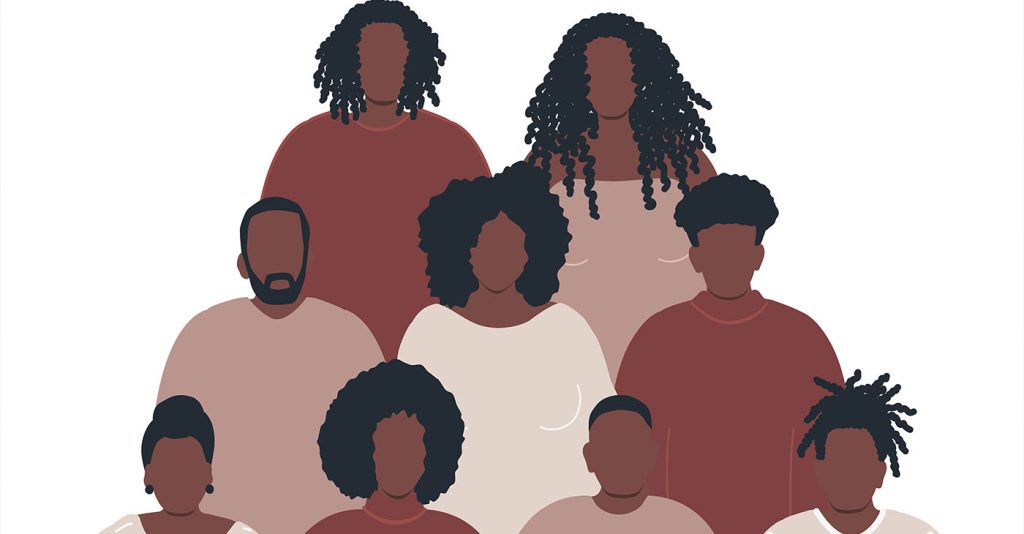As the United States edges closer to possible military action against Iran, history signals a familiar reality for Black Americans: disproportionate risk, unequal support, and a long legacy of being asked to sacrifice more while receiving less. From World War I through Iraq and Afghanistan, Black servicemembers have routinely been overrepresented in combat roles and underrepresented in decision-making positions. Today, although Black Americans make up just over 13% of the U.S. population, they account for nearly 19% of active-duty Army personnel. “When the U.S. goes to war, Black Americans, whether as civilians, enlisted personnel, or military families, often carry a disproportionate share of the burden,” Liscah R. Isaboke, Esq., Managing Partner at Isaboke Law Firm, PLLC, told Black Press USA.
“Historically, Black service members have been overrepresented in frontline and high-risk roles while underrepresented in officer ranks,” Isaboke said. “This exposure results not only in increased physical danger, but also long-term disparities in access to VA benefits, career advancement, and mental health care upon return.” That overrepresentation is linked to greater economic inequality. Recruitment data shows the military draws heavily from low-income communities, and Black Americans—more likely to face systemic barriers to college and employment—are disproportionately represented among enlistees seeking stability, education, or opportunity. Once enlisted, they are less likely to be promoted into leadership roles, often due to bias in evaluation and selection processes. According to the VA’s National Health Study, 21.9% of deployed Black veterans screened positive for PTSD, compared to 14.1% of white veterans. Studies have shown that Black veterans are less likely to receive long-term, culturally competent mental health care and face more barriers to follow-up treatment. Military justice records also reveal that Black service members are more likely to face court-martial than their white counterparts.
“Black Americans have historically been overrepresented in the U.S. military while being under-protected both at home and abroad,” Cazoshay Marie, a disability advocate, artist, and writer, wrote in an email to Black Press USA. “From the disproportionate impact of PTSD and other invisible war wounds among Black veterans to the lack of adequate support upon returning home, the psychological and socioeconomic costs of war weigh heavily.” “Increased military spending often coincides with the defunding of essential programs—education, healthcare, and community infrastructure—which are lifelines in our communities,” Marie said. Those federal divestments have long-term consequences. During the post-9/11 wars in Iraq and Afghanistan, it’s estimated that the U.S. spent over $6 trillion on military operations, interest payments, and veteran care. As those expenses ballooned, domestic programs—including housing subsidies, public education investment, and job training—faced cutbacks. Black Americans, already on the receiving end of wealth gaps and institutional neglect, felt those losses acutely.
In their February 2024 essay “The Race Gap That Shapes American Views of War,” published in Foreign Affairs, Naima Green-Riley of Princeton University and Andrew Leber of Tulane University wrote that Black Americans have consistently been less likely than white Americans to support U.S. wars abroad. The authors cited not only political and moral skepticism but also a deeply rooted sense that these wars are carried out in the name of democracy while offering little tangible benefit to Black communities. “Black Americans are more inclined to ask: Is this war just? Will our people gain anything from it? And what are we sacrificing for a country that so often withholds justice at home?” Green-Riley and Leber wrote.
The article pointed to cultural responses, including KRS-One’s 2008 track “Our Soldiers,” which critiques the Iraq War and opens with a siren that initially evokes U.S. policing. The song’s hook, “Frontline of the political war,” highlights a dual consciousness: the experience of fighting abroad while being targeted and marginalized at home. “As a historian of public health and policy, I can say that when the U.S. goes to war, Black Americans often shoulder a disproportionate share of both the burden and the consequences—on the battlefield and at home,” Dr. Zachary W. Schulz, of the Department of History at Auburn University, told Black Press USA. “Historically, military service has been a double-edged sword for Black Americans,” Schulz said. “From the Civil War through Iraq and Afghanistan, Black soldiers have fought for freedoms abroad they were denied at home. Military service offered mobility, education, and sometimes even a pathway to civil rights advocacy—as in the case of the Double V campaign during WWII—but it also exposed Black personnel to racism within the ranks, limited advancement opportunities, and post-service disparities in veteran care.”
“Civilians are also deeply affected,” Schulz said. “Wars often fuel economic shifts and labor demands that open up jobs for Black workers—only to see those gains reversed when the war ends. Wartime policing and surveillance disproportionately target Black communities, and anti-war protest movements led by Black activists—think Muhammad Ali or Martin Luther King Jr.’s ‘Beyond Vietnam’ speech—have historically met with state suppression and public backlash.” “The impact is layered,” Schulz added. “Black Americans are overrepresented among the fighters, under-resourced in the aftermath, and frequently erased from the national narrative of sacrifice.” “We must tell the full truth,” Isaboke concluded. “Black Americans have always shown up for this country, even when this country has not always shown up for them, especially in times of war.”



